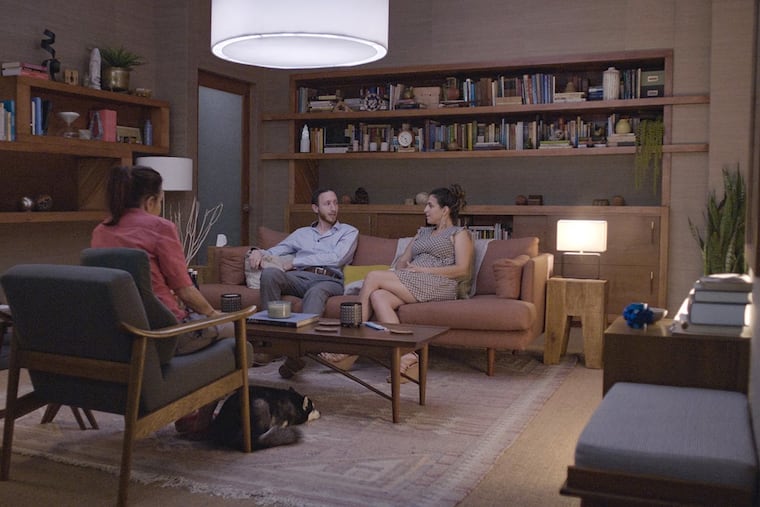Couples’ therapy is in high demand. How to know whether it could help your relationship.
Couples’ therapy is a great option for partners who are noticing increased fighting or decreased emotional or physical intimacy, or who may no longer be on the same page regarding parenting children.

The last two years have been incredibly stressful, and for parents, pandemic stress is likely compounded. Unfortunately, when we are stressed, we tend to take it out on the ones closest to us. At the same time, mental health concerns have been increasing at an astounding rate since the start of the pandemic. Our clinic has been getting more calls and new clients, and we have had more requests for couples’ therapy than ever.
Couples’ therapy is a great option for partners who are noticing increased fighting or decreased emotional or physical intimacy, or who may no longer be on the same page regarding parenting their children.
First, please know that considering or seeking couples’ therapy is not the death knell of your relationship. Signs that a couple may benefit from couples’ therapy include:
Arguments are happening more often or are getting more intense.
Time together has decreased, and/or you don’t feel as connected to your partner anymore.
One or both partners are struggling with their own mental health and this is affecting the family or relationship.
How to find a good couples therapist
Psychology Today is a good resource to find therapists in your area — and you can narrow the search results by experience, location, and even insurance.
I also recommend couples look for therapists trained in Integrative Behavioral Couples Therapy (IBCT) or Emotionally Focused Therapy (EFT). Both of these therapy approaches have been shown to improve relationship functioning and satisfaction relatively quickly so you can get the most out of your therapy experience.
However, mental health treatment can be costly, and couples’ therapy tends to be even more so. If you have health insurance, check with your insurance provider about your coverage. You can also consider working with a trainee under clinical supervision from a seasoned professional. I also often recommend self-help books to my clients, including Eight Dates, Getting Past the Affair, and Hold Me Tight.
What to expect in couples therapy
The first few sessions should be clinical assessments conducted through questionnaires, interviews, or a mix of both — covering your relationship history, a bit about your upbringing, your daily life together, and your goals for therapy. You may meet individually with your therapist early on to complete the assessment, but couples therapists don’t typically continue to meet with each individual separately.
From there, therapists typically will use conflicts from the last week — let’s say fighting about whose turn it was to unload the dishwasher — to help you better understand what is occurring in these conflicts.
A good couples therapist will balance both partners’ perspectives and ask both partners to share the emotions they experience during the interaction (for example, feeling hurt that your partner is not doing his or her share of household work). This is because there are patterns to conflicts within families: how conflicts play out and how we react to each other’s feelings and statements. Becoming aware of these patterns allows us to improve them. Some therapists will spend more time focusing on your internal experiences, and others may focus on doing things differently as a couple.
If things get too hard, your therapist may shift treatment to focus on how each person can handle strong emotions in themselves and each other without continuing to hurt each other. For many of my couples clients, I start with several sessions of reviewing guidelines for effective communication, how and when to take a time-out, and how to call a time-in — or a return from a time-out, which can be tougher than it sounds.
Finding the right fit
Not all therapists can be a good fit for a couple. One big red flag to look for is uneven individual time with the therapist — for example, if you or your partner has more individual sessions that go on beyond the brief assessment phase. Another red flag is if the therapist frequently shares personal details about his or her life or family rather than keeping the focus on your family.
Before the pandemic, few couples therapists offered telehealth, but now all you need to do is find a therapist that is licensed in your state. It’s a great time to reach out whether you’ve been considering couples’ therapy.
Ashleigh Adams, PhD, is a licensed clinical psychologist and an assistant director at the Steven A. Cohen Military Family Clinic at the University of Pennsylvania, which provides free mental health care to veterans, military service members, and their families. Adams provides couples therapy in addition to supporting clients with PTSD, combat exposure, sexual assault, and more.